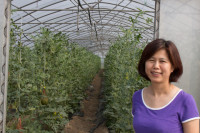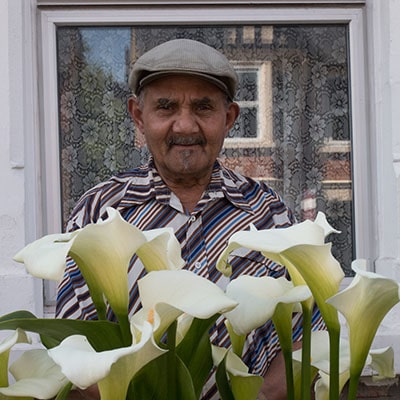Organic farming in China: reliable, safe food
China may be associated with large-scale, commercial agriculture, but on my trip there in 2014 I was delighted to discover that ‘Bio Farm’ in Shanghai is bucking that trend. Founder Jane Tsao (pictured)  set up this small farm in the eastern suburbs of the city in 2004, and it gained organic certification a year later. She now employs about 60 staff and together they grow a range of fruit and vegetables including salad crops, tomatoes, spinach, water melon, figs, strawberries and peaches. The farm manages to stay economically viable by selling its produce to high-end restaurants in Shanghai. This is combined with a community supported agriculture (CSA) scheme with approximately 400 subscribers.
set up this small farm in the eastern suburbs of the city in 2004, and it gained organic certification a year later. She now employs about 60 staff and together they grow a range of fruit and vegetables including salad crops, tomatoes, spinach, water melon, figs, strawberries and peaches. The farm manages to stay economically viable by selling its produce to high-end restaurants in Shanghai. This is combined with a community supported agriculture (CSA) scheme with approximately 400 subscribers.
Bio Farm is linked to Garden Organic though the International Federation of Organic Agriculture Movements (IFOAM), and it uses a range of its educational materials. The team run a ‘grow your own’ education programme and a ‘Bio Farmers Kitchen’, where CSA members and farmers can prepare and cook their food. The day that I visited, its volunteers were preparing open up the farm for a ‘tomato day’ to encourage more visitors.
Jane sees plenty of room for growth in the organic sector in China. “It’s a rather elite niche at the moment,” she says. “But we love and need reliable, safe food in China and we are proof it can work right here in Shanghai.” The biggest problem Bio farm faces is development pressure. This five-acre patch of greenery is right beside a main road and surrounded by factories, offices and suburban housing. Local developers are already arguing that the farm is an inefficient use of space.
This post first appeared as an article in The Organic Way no 213 Spring 2015

